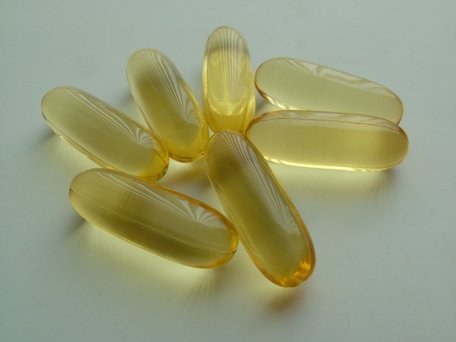 Docosahexaenoic acid (DHA), an essential omega-3-fatty acid, can protect stroke victims from brain damage and disability and aid in a speedier recovery.
Docosahexaenoic acid (DHA), an essential omega-3-fatty acid, can protect stroke victims from brain damage and disability and aid in a speedier recovery. Research led by Nicolas Bazan at Louisiana State University Health Sciences Center has shown that the fish oil component can repair the brain up to five hours after the onset of stroke.
Ischaemic strokes result from loss of blood flow to an area of the brain due to a blockage such as a clot or atherosclerosis. The damage includes an irreversibly injured core of tissue at the site of the blockage. The area of tissue surrounding the core, called the penumbra, is also damaged but potentially salvageable. The penumbra has a limited life span and appears to undergo irreversible damage within a few hours unless blood flow is reestablished and neuroprotective therapy is administered. A cascade of chemicals floods the tissue along with restored blood flow, including damaging free radicals and pro-inflammatory enzymes which can cause further damage and cell death.
Stroke leads to long-term disability, and the current treatment with clot-busting drugs (thrombolysis) has to be administered soon after symptoms occur. But due to a narrow therapeutic window and complexity of administration, only 300% of patients benefit from thrombolysis.
In the study, scientists administered either intravenous DHA or saline to mice at 3, 4 and 6 hours of onset of stroke, comparing the effects on brain swelling and neurobehavioral recovery.
Magnetic resonance imaging (MRI) showed that the volume of brain destroyed by stroke was reduced approximately 40 percent at 3 hours, 66 percent at 4 hours, and 59 percent when DHA was given up to 5 hours after the onset.
Further analysis showed DHA reduced the area of brain damage by triggering Neuroprotectin D1 (NPD1, a brain protective molecule.
Dr. Bazan says "We are just now beginning to understand the significant impact of omega-3 essential fatty acids on stroke. There is no simple solution just yet, but each new discovery brings us closer to defeating stroke and other debilitating neurodegenerative diseases. From a therapeutic point of view, we can now see a light at the end of the tunnel.”
Journal Reference: Ludmila Belayev, Larissa Khoutorova, Kristal D. Atkins, Tiffany N. Eady, Song Hong, Yan Lu, Andre Obenaus, Nicolas G. Bazan. Docosahexaenoic Acid Therapy of Experimental Ischemic Stroke. Translational Stroke Research. Published online 04 November 2010; FULL TEXT
DHA is an essential omega-3-fatty acid and is vital for proper brain function. It is also necessary for the development of the nervous system, including vision. Moreover, omega-3 fatty acids, found in cold water fatty fish, including salmon, tuna, mackerel, sardines, shellfish, and herring, are part of a healthy diet that helps lower the risk of heart disease. DHA has potent anti-inflammatory effects. Since inflammation is at the root of many chronic diseases, DHA treatment has been widely demonstrated to have beneficial effects in patients with coronary heart disease, asthma, rheumatoid arthritis, osteoporosis, sepsis, cancer, dry eye disease, and age-related macular degeneration. And now we another good reason to supplement our diet with Omega-3 fatty acids
STROKE PREVENTION GUIDELINES
National Stroke Association's stroke prevention guidelines will help you learn how you may be able to lower your risk for a first stroke:
- Know your blood pressure.
- Find out if you have atrial fibrillation.
- If you smoke, stop.
- If you drink alcohol, do so in moderation.
- Find out if you have high cholesterol
- If you are diabetic...
- Exercise.
- Enjoy a lower sodium (salt), lower fat diet.
- Circulation (movement of the blood through the heart and blood vessels) problems.
- Know the Symptoms of Stroke.


No comments:
Post a Comment